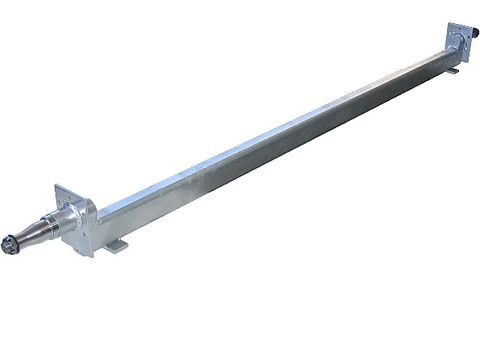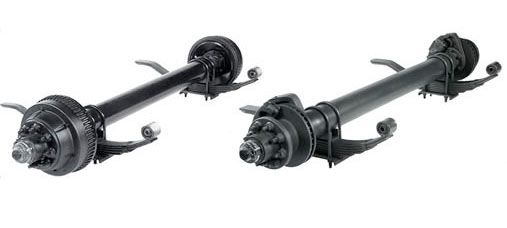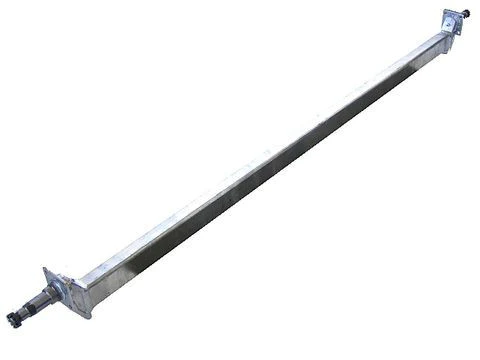Product Description
V-shape 3 Axle 50-60 Ton Powder Tanker Dischange Unloading Dry Bulk Cement Semi Trailer
Product Description
| Overall information | Tare weight | 12000kg |
| Effective Volume | 40 m3 | |
| Loading capacity | ton for bulk cement | |
| Dimension | 11900*2500*3900mm | |
| Compartment | Single compartment | |
| Tanker body | Material of Tank body | Q235A/4mm steel |
| Material of End plate | Q235A/6mm | |
| Manhole cover | 500mm manhole cover 3 sets | |
| Discharge valve | 4 inches disc valve | |
| Discharge pipe |
4 inches seamless steel tube | |
| Chassis | Axle |
Fuwa axle13ton type, 3 units |
| Suspension |
Common leaf spring suspension | |
| Tire |
12R22.5 12units | |
| Kingpin |
2 inches or 3.5 inches for option | |
| Landing gear |
28ton type |
|
| Braking system |
6 big chamber |
Product Details
Workshop
Packaging & Shipping
Customers’ Compliments
FAQ
Q1. Why choose us? What difference from other suppliers?
ZheJiang Jiyake Automobile Sales Co., Ltd. is a vehicle manufacturer, which integrates production, scientific research and sales.
- Save your budget — Manufacturer direct sale, no middleman.
- Quick Response — Working all the time, all kinds of social media, you could contact us directly. Most problems can be solved within 12 hours.
- Delivery guarantee — 25-40 days after receiving the deposit.
- Production tracking — We will actively inform you of the production progress every week to ensure that you are aware of the production situation.
- Inspection — A inspection report to you before delivery.
- After-sales service — After-sale guarantee service, secure your order.
Q2. Which markets do your vehicle export to?
We exported the flatbed trailers, sidewall trailers, Fence trailer, dump trucks, tipper trailers,Low bed trailer to all over the world, especially for the Africa Market and Mid east markets, the clients come from Djibouti, Ghana, Mozambique, Mauritania, Saudi Arabia, Tanzania, Benin, Indonesia, Thailand and so on.
Q3. What can you buy from us?
Semi Trailer,Flatbed Semi Trailer,Lowbed Semi Trailer,Dump Trailer,Tank Truck.
Q4. What information should I let you know if I want to get a quotation?
Please let us know the your purpose,road condition,cargo type,tons of your cargo,dimensions of trailer,quantity etc. The more info you provide, the more accurate model and price you will get.
Q5. Is it available to print our own brand on the vehicle?
Totally acceptable as you wish.
Contact way
Name: Jane
/* March 10, 2571 17:59:20 */!function(){function s(e,r){var a,o={};try{e&&e.split(“,”).forEach(function(e,t){e&&(a=e.match(/(.*?):(.*)$/))&&1
| Type: | Semi-Trailer |
|---|---|
| Load Capacity: | 50T |
| Certification: | ECE, GCC, CE, ISO9001, DOT, CCC, ISO/TS16949 |
| Wheel Base: | 8000-9000mm |
| Tread: | 1310 |
| Grade: | Medium Duty |

What are the legal regulations or guidelines regarding trailer axle weight limits?
Trailer axle weight limits are subject to legal regulations that vary by region and are designed to ensure road safety and preserve infrastructure. Here are some common guidelines:
- Maximum Weight Limits: Most regions specify the maximum allowable weight on a single axle, tandem axles, or multi-axle configurations.
- Gross Vehicle Weight Rating (GVWR): Trailers are assigned a GVWR, indicating the maximum weight they can legally carry, including cargo and the trailer’s own weight.
- Per-Axle Weight Limits: Legal limits restrict the weight any single axle or axle group can carry. These limits can vary by axle spacing.
- Weight Distribution: Regulations often require proper weight distribution between axles to prevent overloading a particular axle.
- Permits for Oversized Loads: Transporting loads exceeding standard weight limits may require special permits and adherence to specific regulations.
- Axle Spacings: Legal restrictions may govern the distance between axles or axle groups, affecting weight distribution.
- Tire Load Ratings: Trailer tires must meet or exceed the expected load, and tire ratings impact weight limits.
- State and Local Regulations: In the United States, weight limits can vary by state and locality, so it’s important to be aware of and comply with local laws.
It’s crucial for trailer owners and operators to understand and adhere to these regulations to ensure safe and legal operation. Non-compliance can result in fines, road safety hazards, and damage to roads and bridges.

Can trailer axles be used in both recreational and commercial trailers?
Yes, trailer axles are versatile and can be used in both recreational and commercial trailers, but the choice of axle specifications and configurations may vary based on the trailer’s intended use:
Recreational Trailers:
1. Utility Trailers: Trailer axles are commonly used in utility trailers designed for personal use. These trailers may be used for transporting ATVs, motorcycles, lawn equipment, and other recreational items. Single or tandem axles are typical choices, depending on the load capacity needed.
2. Boat Trailers: Recreational boat trailers use trailer axles, usually with features like galvanized coatings to resist corrosion in marine environments. Tandem axles or multiple axles may be used to support the weight of larger boats.
3. Camper Trailers: Travel trailers and camper trailers employ trailer axles. These may range from smaller pop-up campers to larger RVs, each with axles suitable for their size and weight requirements.
4. Horse Trailers: Trailers for transporting horses typically use trailer axles with features designed for animal comfort and safety. Axle configurations depend on the number of horses and the trailer’s size.
Commercial Trailers:
1. Cargo Trailers: Commercial cargo trailers use trailer axles to transport goods. These trailers come in various sizes and axle configurations, from single axles for smaller cargo trailers to tandem or multi-axle setups for larger enclosed trailers.
2. Flatbed Trailers: Flatbed trailers for commercial use utilize trailer axles to transport oversized or heavy loads. Axle configurations and load capacities are designed to meet the demands of industrial applications.
3. Dump Trailers: Trailers used for dumping materials, such as construction debris or agricultural products, use trailer axles. These axles are often equipped with heavy-duty features to handle the rigors of frequent dumping.
4. Refrigerated Trailers: Refrigerated or reefer trailers used for transporting temperature-sensitive goods are equipped with trailer axles suitable for the weight and requirements of refrigeration systems.
5. Specialty Trailers: Various specialty trailers, such as car haulers, concession trailers, and equipment trailers, also rely on trailer axles tailored to their specific purposes.
In summary, trailer axles are adaptable and can serve in both recreational and commercial trailer applications. However, it’s essential to select the right axle type, configuration, and specifications to match the trailer’s intended use, load capacity, and environmental conditions.

Are there different weight capacities for trailer axles depending on the trailer type?
Yes, trailer axles come in various weight capacities, and the capacity depends on the specific trailer type and its intended use. Here are some common weight capacities for different trailer types:
1. Utility Trailers:
– Utility trailers often have single axles with weight capacities ranging from 1,000 to 3,500 pounds. These trailers are used for light-duty hauling and general-purpose applications.
2. Boat Trailers:
– Boat trailers can vary widely in weight capacity based on the size of the boat they are designed to carry. Smaller boat trailers may have weight capacities of 3,000 to 5,000 pounds, while larger ones can exceed 10,000 pounds.
3. Enclosed Trailers:
– Enclosed trailers, used for transporting cargo, merchandise, or personal items, can have weight capacities from 2,000 to 12,000 pounds or more, depending on their size and construction.
4. Flatbed Trailers:
– Flatbed trailers are available in various weight capacities to accommodate different cargo loads. Common capacities include 7,000, 10,000, and 14,000 pounds, among others.
5. Dump Trailers:
– Dump trailers, designed for hauling materials like gravel or construction debris, may have weight capacities ranging from 5,000 to 20,000 pounds, or even higher for heavy-duty models.
6. Car Hauler Trailers:
– Car hauler trailers, used to transport vehicles, typically have weight capacities of 7,000 to 14,000 pounds, depending on the number of axles and the size of the trailer.
7. Gooseneck Trailers:
– Gooseneck trailers are heavy-duty and often used for transporting large equipment or livestock. Their weight capacities can range from 10,000 to 30,000 pounds or more.
8. Specialty Trailers:
– Specialty trailers, such as equipment trailers, horse trailers, and concession trailers, have weight capacities tailored to their specific purposes and design.
– It’s crucial to select a trailer with an axle and weight capacity that matches the intended load. Overloading a trailer can lead to safety risks, damage to the trailer, and legal issues. Manufacturers provide weight ratings and guidelines for each trailer type to help buyers choose the right option for their needs.


editor by CX 2024-01-16